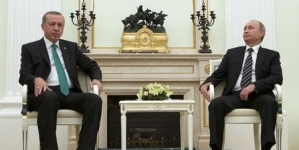-
Tips for becoming a good boxer - November 6, 2020
-
7 expert tips for making your hens night a memorable one - November 6, 2020
-
5 reasons to host your Christmas party on a cruise boat - November 6, 2020
-
What to do when you’re charged with a crime - November 6, 2020
-
Should you get one or multiple dogs? Here’s all you need to know - November 3, 2020
-
A Guide: How to Build Your Very Own Magic Mirror - February 14, 2019
-
Our Top Inspirational Baseball Stars - November 24, 2018
-
Five Tech Tools That Will Help You Turn Your Blog into a Business - November 24, 2018
-
How to Indulge on Vacation without Expanding Your Waist - November 9, 2018
-
5 Strategies for Businesses to Appeal to Today’s Increasingly Mobile-Crazed Customers - November 9, 2018
Top US -Iranian meeting amid new nuke deal target date
Iranian Foreign Minister Mohammad Javad Zarif, right, talks to journalist from a balcony of the Palais Coburg hotel where the Iran nuclear talks are being held in Vienna, Austria, Friday, July 10, 2015.
Advertisement
Kerry and Zarif met on Saturday with European Union foreign policy chief Frederica Mogherini and were conferring with other foreign ministers involved.
Rouhani, who was elected president in 2013 on a platform of improving Iran’s relations with the world as well as its sickly oil-based economy, was quoted by Iran’s Nasim news agency as suggesting talks could succeed or fail. But while Germany’s foreign minister remains in Vienna, the Russians and Chinese left days ago, and their French and British counterparts followed Friday, reflecting the lack of substantial advances. British Foreign Secretary Phillip Hammond was expected later Saturday.
France’s Foreign Minister Laurent Fabius said the parties would continue negotiating overnight to try to resolve the “difficult issues” that remained in nuclear talks.
Kerry told reporters late on Friday the atmosphere in the talks was constructive.
Those comments came a day after he had declared for the second time in the current round that the negotiations could not be open-ended, warned that the USA was prepared to call an end to the talks and challenged Iran to make tough choices to seal a deal.
Western planemakers look set to reap billions of dollars in deals with Iran, if a deal is done on its nuclear program to allow one of the world’s most promising aviation markets to come out of quarantine.
Among the biggest sticking points this week has been Iran’s insistence that a United Nations Security Council arms embargo and ban on its ballistic missile program dating from 2006 be lifted immediately if an agreement is reached. The Americans want no restrictions, whereas Iranian officials say they are concerned that unrestricted monitoring could be a cover for Western spying.
A senior Iranian official speaking on condition of anonymity said on Thursday the United States and other Western powers were shifting their positions and backtracking on an April 2 interim accord that was meant to lay the foundations for a final deal.
By missing that target, the US and Iran now have to wait for a 60-day congressional review period during which President Barack Obama can not waive sanctions on Iran. Had they reached a deal by Thursday, the review would have been only 30 days.
The chairman of Iran Air, Farhad Parvaresh, told Reuters past year that, as soon as sanctions were eased, Iran would seek to obtain at least 100 wide-body and short-haul jets, but that it would turn to Russian Federation and China if nuclear talks collapsed.
Advertisement
This story has been corrected to reflect that the talks have gone past four deadlines and into three extensions.




























